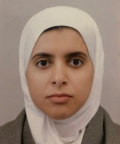
Automated Software Engineering Research Group
We develop novel methods and tools for automated model-driven analysis, design, development, deployment, and management of complex software-intensive systems.
We are global leaders in model-driven software engineering research and we engage actively with industry in the UK and world-wide through open-source software communities, collaborative research and development projects and knowledge transfer partnerships.
Contact us

Professor Dimitris Kolovos
Automated Software Engineering Research Group lead
In most engineering disciplines it is unthinkable to start constructing a large and complex system (e.g. a bridge or an aircraft) without designing and analysing several models of it first. Model-driven software engineering is the practice of raising models to first-class artefacts of the software engineering process, using such models to analyse, simulate and reason about properties of the system under development, and eventually automatically generate high-quality executable code from them. It brings and adapts well-understood and long-established principles and practices of trustworthy systems engineering to software engineering and is used extensively in organisations that produce business- and safety-critical software (e.g. in the aerospace, automotive and robotics industries), where defects can have catastrophic effects or can be very expensive to remedy.
Automated model-driven software engineering approaches are also increasingly used for the development of scalable cloud-based software systems - e.g. in low-code environments such as Microsoft Power Apps, Amazon Honeycode and Google AppSheet - due to the significant productivity, quality and business agility benefits they deliver.
We are recognised global leaders in model-driven software engineering research, with a long publication record in the field’s top academic conference (ACM/IEEE International Conference on Model-Driven Engineering Languages and Systems) and journal (Springer’s Software and Systems Modelling). We also engage actively with industry, by making our research available as open-source software that is used in organisations such as NASA, Siemens, Bosch and Thales, through collaborative research projects with partners such as Leonardo, Capgemini and Volkswagen, and via direct knowledge transfer partnerships with companies such as Rolls-Royce and IBM.
We develop novel methods and tools for automated model-driven analysis, design, development, deployment, and management of complex software-intensive systems. We aim not only at furthering the state of the art in automated software engineering, but also at enabling the practical application of the results of our research, by making them available to practitioners in the form of high-quality and well-documented open-source software. This facilitates an active and meaningful interaction with industry and ensures the continued practical relevance of our research.
Our research strives to automate solutions to repetitive and error-prone problems in software engineering. By doing so we support software engineers in focusing on those challenges that require their insight, design expertise, and competencies. Our research particularly benefits engineers and architects of large-scale enterprise software systems, and of complex software-intensive systems in high-integrity industries such as aerospace, robotics and automotive. We collaborate closely with industrial partners such as Rolls-Royce, Leonardo, Capgemini, and British Telecom, and open-source tools and frameworks we develop are used to apply and teach automated model-driven software engineering in many organisations and universities worldwide.
Stories
Group members
| Photo | Contact details |
|---|---|
| Academic staff | |
 |
Dr Konstantinos Barmpis Academic staff |
 |
Dr Lilian Blot Academic staff |
 |
Dr Antonio Garcia-Dominguez Academic staff |
 |
Academic staff |
 |
Academic staff - group lead |
 |
Honorary Visiting Professor |
 |
Academic staff |
| Research staff | |
 |
Dr James Harbin Research associate |
 |
Dr Sondess Missaoui Research associate |
 |
Research associate |
 |
Research associate |
 |
Research assistant |
 |
Research associate |
| Postgraduate research students | |
 |
Seham Alharbi Postgraduate research student |
 |
Qurat ul ain Ali Postgraduate research student |
 |
Daniel Bethell Postgraduate research student |
 |
Adam Homolya Postgraduate research student |
 |
Sorour Jahanbin Postgraduate research student |
 |
Panagiotis Kourouklidis Postgraduate research student |
 |
Pandelis Kriadis Postgraduate research student |
 |
Ana Markovic Postgraduate research student |
 |
Ionut Predoaia Postgraduate research student |
 |
Nathan Richardson Postgraduate research student |
 |
Robert Soeldner Postgraduate research student |
 |
Federico Vastarini Postgraduate research student |
| Other affiliates | |
 |
Danny Roberts Postgraduate research student |
 |
Ran Wei Affiliate |
 |
Athanasios Zolotas Affiliate |
Contact us

Professor Dimitris Kolovos
Automated Software Engineering Research Group lead